Search Images
Browse Content (p. 1342)
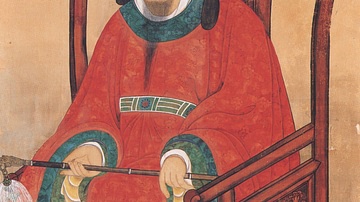
Image
Choe Chiwon
A portrait of Choe Chiwon (857-915 CE), a celebrated poet and scholar of the Unified Silla kingdom of Korea. By Chae Yong-shin

Image
Great Sphinx, Giza
The Great Sphinx of Giza measures 240 feet long (73 m) and stands 66 feet high (20 m), oriented on a straight west-to-east axis, Giza, Egypt.
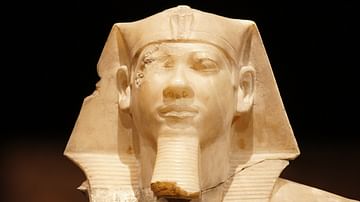
Image
Statue of Khafre
Statue of the 4th-Dynasty king Khafre (2558-2532 BCE).
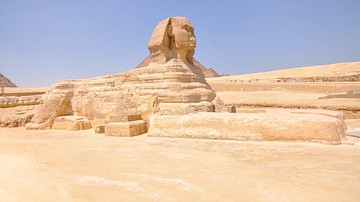
Image
The Great Sphinx of Giza
The Great Sphinx of Giza's construction date is subject to ongoing scholarly debate; the huge monument standing in line with Khafre's pyramid is still a mystery.
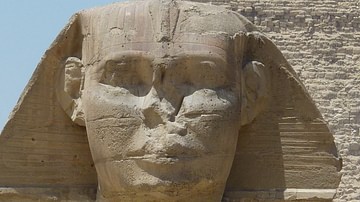
Image
Face of the Sphinx
The face of the Great Sphinx of Giza has been believed to depict Khafre, although this claim is disputed.
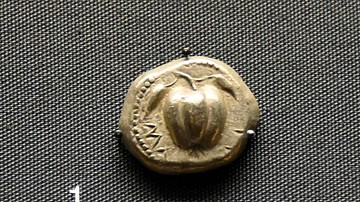
Image
Coin from Melos
Silver stater coin, from Melos, Greece, c. 450 BCE.
Some Greek cities used images for their names, so "readers" did not have to be literate. In Melos, an apple (mēlon) was used.
The British Museum, London.
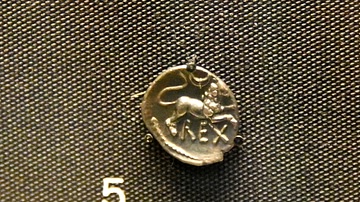
Image
Latin and Celtic on British Coin
Before the Roman invasion of Britain in 43 CE, rulers in the south-east struck coins with Latin inscriptions. Verica is described as REX (king) and COOMI F (son of Commius). Gradually, names usually in Celtic, appeared on coins beyond the...
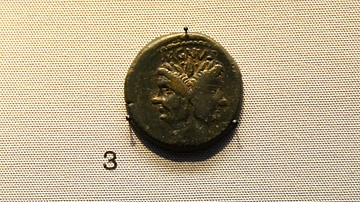
Image
Roman Bronze As Coin
This is one of the first Roman portrait coins. Roman Republican coins did not usually depict living people, although a statue of the politician Sulla appeared on a coin during his lifetime. The son of Pompey the Great adapted a traditional...
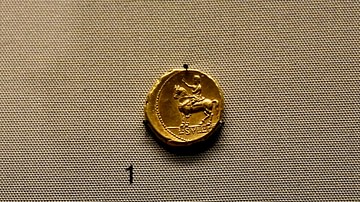
Image
Roman Republic Gold Aureus
This gold aureus is one of the first Roman portrait coins. Roman Republican coins did not usually depict living people, although a statue of the politician Sulla appeared on a coin during his lifetime. The son of Pompey the Great adapted...
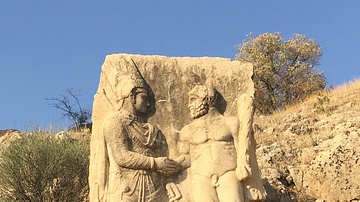
Image
Apollo-Mithras Meets Antiochus I
Found in the ancient ruins of Arsameia, outside Kahta, Turkey, 15 km from the world heritage site of Nemrut Dagi, this stele portrays the meeting of Antiochus I (r. 70 BCE - c. 38 BCE) and Apollo. Antiochus - the ruler of the Commagene kingdom...